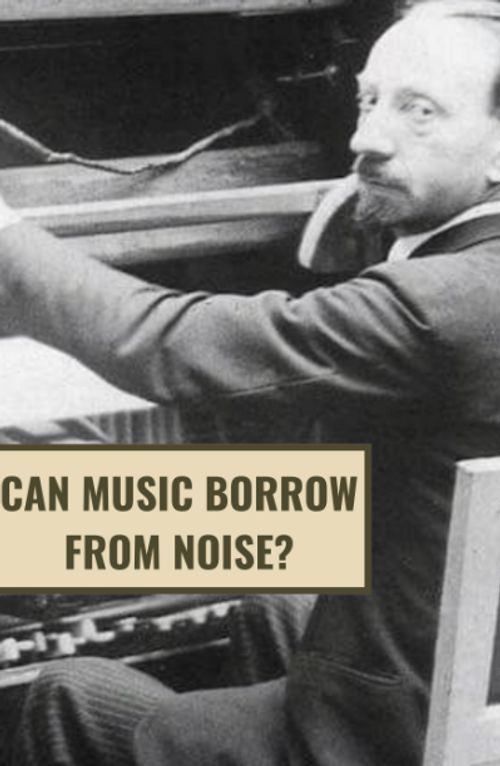The Man Who Wished To Invent A New Form Of Music
May 30, 2022 · 2 mins read
0
Share

Introduction. Luigi Russolo was a futurist painter and polymath. In a 1913 letter to his futurist musician friend, Pratella, he wrote The Art Of Noise - a wide-ranging manifesto that touches on the past, present, and future of music. Let's dig in 👇
Save
Share
Russolo writes: "In antiquity, life was nothing but silence. The loudest noises were neither intense, nor prolonged nor varied. In fact, nature is normally silent, except for storms, hurricanes, avalanches, cascades." For a long time, people lived in a muted sonic landscape.
Save
Share
When humans produced music for the first time using certain instruments it was immediately co-opted by religion. Priests used music and "enriched their rites with a new mystery." This created the notion that music is "something apart, different from and independent of life."
Save
Share
Music then became "a fantastic world superimposed upon reality, an inviolable and sacred world." Russolo: "This hieratic atmosphere was bound to slow down the progress of music, so the other arts forged ahead and bypassed it."
Save
Share
The industrial revolution transformed our muted sonic world. Russolo: "Noise was really not born before the 19th century, with the advent of machinery. Today noise reigns supreme over human sensibility." The hum of machinery & the roar of engines maintain a perma layer of noise.
Save
Share
Our ears today demand a more multi-layered form of music: "The ear of an eighteenth century man never could have withstood the discordant intensity of some of the chords produced by our orchestras; on the other hand our ears rejoice in it, for they are attuned to modern life."
Save
Share
Russolo urges musicians to "break at all cost from this restrictive circle of pure sounds" and create new music by borrowing from the rich tapestry of sounds offered by the machine age. As machines multiply, musicians will have an ever-expanding set of noises to borrow from.
Save
Share
Russolo says the musician can borrow sounds from "the different roars of railroad stations, iron foundries, textile mills, printing houses, power plants and subways." The aim isn't to create aberrant screeching but to "score harmonically & rhythmically these most varied noises."
Save
Share
Concluding his letter, Russolo wrote: "Bolder than the bolder professional musician, totally unpreoccupied with my apparent incompetence, knowing that audacity gives all prerogatives and all possibilities, I have conceived the renovation of music through the Art of Noise."
Save
Share
Bottom line. Russolo's future never arrived: "In a few years, the engines of our industrial cities will be skillfully tuned so that every factory is turned into an intoxicating orchestra of noises." But his manifesto remains an ode to experimentation and artistic risk-taking.
Save
Share
0